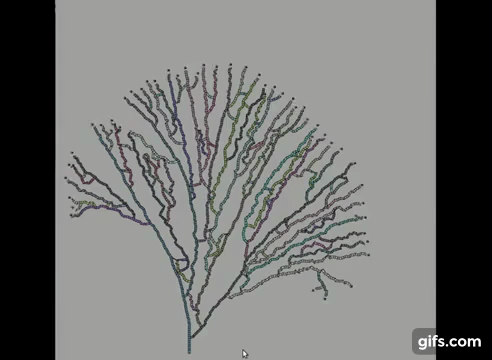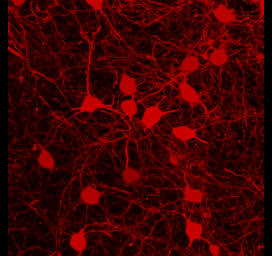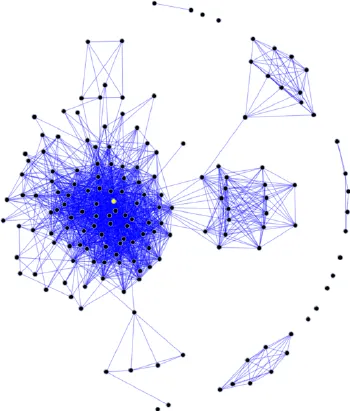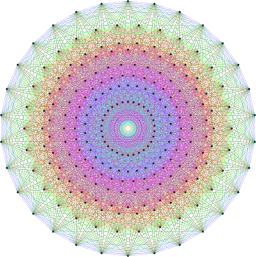
Magic Lake
Magic Lake.....fed by the spring of Creation
A looking glass for the soul's reflection
From which the image is cast
To the observer it is a paradox
for it only reflects what is seen
Serving to the question "what would you like me to be?"
What an interesting topic to talk about, PERCEPTION!
It's also a bit of a paradox as my poem suggests. The paradox is that what is reality if we are our own perceptions as 'observers' of this world? Especially if the world and those around us, are telling us what we should carry as a model for who we are - at least, what we perceive others think of us.
“I am not who you think I am; I am not who I think I am; I am who I think you think I am ” ~ Thomas Cooley
Is my perception the same as someone elses perception? And if that is true, then who's version of reality is accurate - if any? Do multiple siblings have the same perception of a shared memory? They often don't.
It might seem to be a small, insignificant topic, but I think our perceptions carry great significance in that they do shape our world and our future.
So, let's start with the most basic terms, what is the dictionary definition of PERCEPTION:
Perception - Insight, intuition, or knowledge gained by perceiving. We all perceive those around us because of the way in which the human mind processes information.
A word that is often confused as perception is 'opinion'
Opinion - a view or judgment formed about something, not necessarily based on fact or knowledge. Opinion, however, is a matter of arriving at a decision based on initial perceptions. Opinion is when you take the information filtered through your perception, analyze it, and arrive at a decision, regardless of how flawed your analysis might be.
Your Perception is Everything
A well-known concept or theory on perception, is that of The Looking-Glass Self by Charles Horton Cooley.
In Cooley's body of work, he suggests that our perceptions are formed very early in life from infancy and offers three steps in this progression of self-identity and the mirrored model as a basis to building the framework of self-perception:
The imagination of our appearance to others
The imagination of their judgment of that appearance.
The development of feelings about and responses to these judgments
Notice anything interesting here?
Perception is being drawn from outside of ourselves and we are perceiving who we are from that place based on what we perceive to be true or not.
He further states that many of our feelings about ourselves are attributable to our interpretations of others' impressions of us.
Most likely your perceptions of yourself have in one way or another been conveyed to you during your interactions with others.
Since our own mental filter and perception chooses what we experience and how we feel, it should also be noted that, in some cases, those mental structures can have fallacies that don't exactly represent facts. This is called, cognitive distortion and will cause the mind to take these distorted details and weave them into the story of what we perceive as our reality.
This is why it's so important to evaluate what you are perceiving from others and how and why you feel the way you do. Is it fact or is this based on a fallacy created in order to make that inaccurate self-held belief true?
If our emotions follow our thoughts, then we are ultimately responsible for those emotions. We own them and we own the lens in which we perceive our reality.
Personally, I don't want to allow negativity as the source of what I perceive the world from. That's not to say, the world doesn't have negativity in it and we don't have a lot of cleanup to do, but there is a lot of good, too. Our perceptions serve us best when they are well-balanced and consist of checks and balances to alleviate the distorted mindsets and thoughts which really do nothing constructive to make the world or our own lives better.
Cooley also breaks down the process of socialization which help build our self-perception and our world reality:
- Family
- School
- Mass Media/Social Media/Technology
If you would like to learn more about the implications of these three sources for socialization, read: Society in Focus: An Introduction to Sociology

Media
I would like to touch on the media portion of this socialization, however, because Newspapers, magazines, radio, television and movies play an important transmitter of culture and perception. They are actually one of the most powerful agents of socialization.
If media is helping shape our identity and that message is a negative one, consider how this is affecting our perceptions and how we interact and relate to one another!
Is mass media and advanced technologies of communication beneficial?
When you consider cultural hegemony (the domination of cultural industries by elite groups) such as the educational system, religion, the family and most importantly, the media in modern society - you have to give this question some serious thought!
Who and what are you giving permission to not only influence your perception of yourself and the world, but also shaping the society you live in. Where is this taking society in the future?
Doesn't putting this question in these terms, warrant deeper thought and decision making? Often times, we take this for granted and don't give it much thought but it is very important and we should be aware of the who and the what.
For the most part, the media today (which reaches millions of people within moments) is largely and disproportionately influenced by large corporations and government. This has been the case for a very long time, but most especially since 2011 when the Smith Mundt Act was repealed. Now, it is legal to use propaganda on the public. I do not know what the regulations and laws are in other countries, I suspect similar since propaganda is so widespread.
Edward Bernays is considered the Father of Propaganda (Nephew of Sigmund Freud). In the 1940's, he was in high demand by many well-known corporations and industries. Bernays had the midas touch and inside logistics for basically hacking public perception. In his early days, he was called upon to save the aluminum industry by launching a campaign to promote fluoride as healthy. You see, this industrial waste bi-product was threatening the aluminum industry's survival because of the expensive disposal and lawsuits that were racking up due to the disastrous environmental and health effects. Public perception that fluoride was toxic was growing.
The campaign went something like this:
How simple it is to influence minds and create a false perception.
This is what Edward Bernays thinks of the general public:
He described the masses as irrational and subject to herd instinct—and outlined how skilled practitioners could use crowd psychology and psycho-analysis to control them in desirable ways.
Bernays touted the idea that the "masses" are driven by factors outside their conscious understanding, and therefore their minds can and should be manipulated by the elite few.
"Intelligent men must realize that propaganda is the modern instrument by which they can fight for productive ends and help to bring order out of chaos." ― Edward L. Bernays
“Propaganda is the executive arm of the invisible government.” ― Edward L. Bernays
“The conscious and intelligent manipulation of the organized habits and opinions of the masses is an important element in democratic society. Those who manipulate this unseen mechanism of society constitute an invisible government which is the true ruling power of our country. ...We are governed, our minds are molded, our tastes formed, our ideas suggested, largely by men we have never heard of. This is a logical result of the way in which our democratic society is organized. Vast numbers of human beings must cooperate in this manner if they are to live together as a smoothly functioning society. ...In almost every act of our daily lives, whether in the sphere of politics or business, in our social conduct or our ethical thinking, we are dominated by the relatively small number of persons...who understand the mental processes and social patterns of the masses. It is they who pull the wires which control the public mind.” ― Edward L. Bernays
The reason why Edward Bernays is important to this topic is that he pioneered the public relations field and it is the basis for much of what is utilized by both governments and corporations to manipulate public perception.
So, you have to really consider, what exactly is reality if nearly every aspect of our lives has been modeled by propaganda?
Is this all that we are? Just some meshing together of brain matter that acts like a computer and easily manipulated and hacked?
NO!
I'm sure that some would wish it to be that way and I'm sure that there are those that believe this is who we are, but we are far more than this and perception expands far beyond the confines of our sensory system and brain.
No one is going to convince me otherwise. I think humanity is full of potential equal to our ability to imagine and create. THIS is the true self - the un-hackable part.
The really important kind of freedom involves attention and awareness and discipline, and being able truly to care about other people and to sacrifice for them over and over in myriad petty, unsexy ways every day. That is real freedom. That is being educated, and understanding how to think. The alternative is unconsciousness, the default setting, the rat race, the constant gnawing sense of having had, and lost, some infinite thing. ~ David Foster Wallace

Now, let's travel a little deeper into perception
To understand is to perceive patterns
True comprehension comes when the dots are revealed and you realize the bigger picture.
“I see the mycelium as the Earth's natural Internet, a consciousness with which we might be able to communicate. Through cross-species interfacing, we may one day exchange information with these sentient cellular networks. Because these externalized neurological nets sense any impression upon them, from footsteps to falling tree branches, they could relay enormous amounts of data regarding the movements of all organisms through the landscape.”
― Paul Stamets, Mycelium Running: How Mushrooms Can Help Save the World

Mycelium growth Source by Rafal Szczerski

Neurons in the brain Source
by Bruttokolliko


Social Network Source
According to sociologist, Richard Jenkins, the human condition has always meant going beyond the evidence of our senses. In other words, every aspect of our lives is tied to the collective sense...something beyond ourselves.
An interesting project that has been ongoing for a decade or so, is Global Consciousness Project (run out of Princeton) which studies this seemingly mysterious phenomenal of collectiveness.
The GCP, which has international participants of about 25,000, is utilizing advanced magnetometer sensing technology to observe changes in the earth’s magnetic field by, among other possible effects, mass human emotions.
The ball changes color according to spikes in variations around the world. This little ball went completely haywire 4 hours before 9/11 happened suggesting that somehow, in some way, our consciousness was tuned into something that had not even occurred yet. Suggesting that we are not only connected to one another but also connected to the events that happen or will happen in the future.
If we are indeed this interconnected network of patterns and consciousness then surely there must be a higher collaborative exchange happening outside of our normal realized perception. I find that very comforting.
I think that our experiences with the numinous, as well, gives us this validating clue that there is something more to us than just the mechanics of our brain and senses - Despite our ignorance of things that exist outside our perceivable knowledge.
Take for example the spiritual or mystical experience. These experiences seem to expand our perception beyond the known. We get little glimpses of something much bigger than ourselves. Suddenly the experiencer discovers the doors of perception are cleansed and new perceptions come into being...new ideas, new inspirations, new understanding. Is this not how creativity and imagination also happen?
There is a consistency to this experience shared. Some of the hallmarks are:
- Feelings of Unity or Oneness with everything and interconnection
- Transcendence of time and space
- The Mind feels free of the shackles of the ego
- A sensation of bliss/love and ecstatic gratitude
- A feeling that you are connecting with something sacred and divine
- The experience and feeling is beyond the ability to put into words
- You are able to hold many perspectives at once without the constraints of judgment
- The experience leaves a person transformed and the change is ever-lasting - it is life changing and it opens up expansive new perspectives, profound perspectives
Source
Once you start connecting the dots of all these patterns and experiences, you begin to see the bigger picture, or at least consider that there is more to reality than we realize.
One of the most profound new discoveries on the horizon in theoretic physics is E8. A theoretical physicist named, Garrett Lisi, has discovered quite possibly the 'Theory of Everything' - the keys to how reality works and our ability to interact with it. Maybe even creatively solve some of our biggest problems.
The above is a precise mathematical representation of E8 or the 8th dimension. It appears to encode all of the particles and forces of our 3-dimensional universe. It far exceeds string theory in its fluidy of concept and ability to cohesively bridge together so many unsolved problems within the theoretical physics study. Another scientist, Klee Irwin, believes that the universe is essentially a 3-dimensional "shadow" of this enigmatic thing that may exist behind the curtain of our reality.
To further blow the mind, when Klee Irwin makes an irrational projection of E8, down to a lower dimensional 'shadow' in 3D (where our current perceivable reality resides), something remarkable happens...the object becomes a 'language'! A language of geometric letters and rules that allows you to arrange those letters and encode those letters with information. Forget 1's and 0's...this takes us to a whole new level of perception and creativity.
As I stated in my last post on "life is astonishing", new experiences EXPAND our perspective - we are literally stepping outside of the constructs of limited perception into a state of wonderment/creativity!
"Those who were seen dancing were called insane by those that could not hear the music" ~ Friedrich Nietzsche

If you have the time, this is both an entertaining and informative documentary on E8 (28 min)
Is there an 8-dimensional "engine" behind our universe?
Additional Sources:
Charles Horton Cooley:
- Society in Focus: An Introduction to Sociology Source

Perception is just another Drop in the Ocean. To find out more about participating in @buddyup 's next topic, you can find out more -----> HERE

